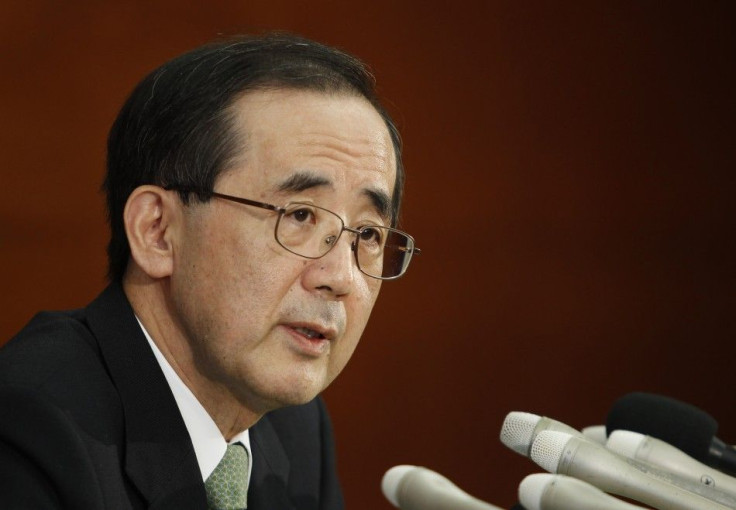Bank Of Japan Key Interest Rate, Balance-Sheet Size Unchanged

The Bank of Japan left its key interest rate unchanged after concluding a two-day policy board meeting Tuesday, amid political pressures to handle deflation.
The BOJ's policy board voted unanimously to keep its key rate within a range of zero to 0.1 percent and said Japan's economy is showing signs of improvement.
The board also unanimously decided to maintain the size of the bank's asset-buying program at 65 trillion yen ($803 billion). The program is the main tool the BOJ uses to keep interests rates near zero.
Although the bank didn't announce new measures on monetary policy, its governor, Masaaki Shirakawa, told reporters after Tuesday's rate announcement that the BOJ will closely examine Japan's economy when its policy board next meets, on April 27, to discuss growth and price forecasts. However, Shirakawa didn't provide hints of any possible further action.
We will examine the outlook for the economy and prices with special care at the next meeting when the outlook report is due. We will steer monetary policy appropriately based on the analysis, he said.
Earlier, Finance Minister Jun Azumi had expressed hopes that the BOJ would make efforts this month to help solidify growth. I believe this is an important month for us to build a solid base for the economy for this year so it can make a further leap forward, he said.
From that perspective, and with a Group of 20 meeting [of finance ministers in Washington] coming up, I think the BOJ will act appropriately at the right time, he added.
Azumi said the government and the BOJ were closely coordinating their policy response. Economy and Fiscal Policy Minister Motohisa Furukawa said the government wants the bank to use prompt, flexible policies to achieve its goal of price stability.
In response to Tuesday's rate announcement, the yen strengthened, putting pressure on Japanese exporters. The currency rose to 81.00 against the U.S. dollar after falling from 81.49 late Monday.
The 225-stock Nikkei average, up 1.1 percent at one point Tuesday, finished down 0.1 percent, making a sixth consecutive day of declines for Japanese shares.
© Copyright IBTimes 2025. All rights reserved.





















